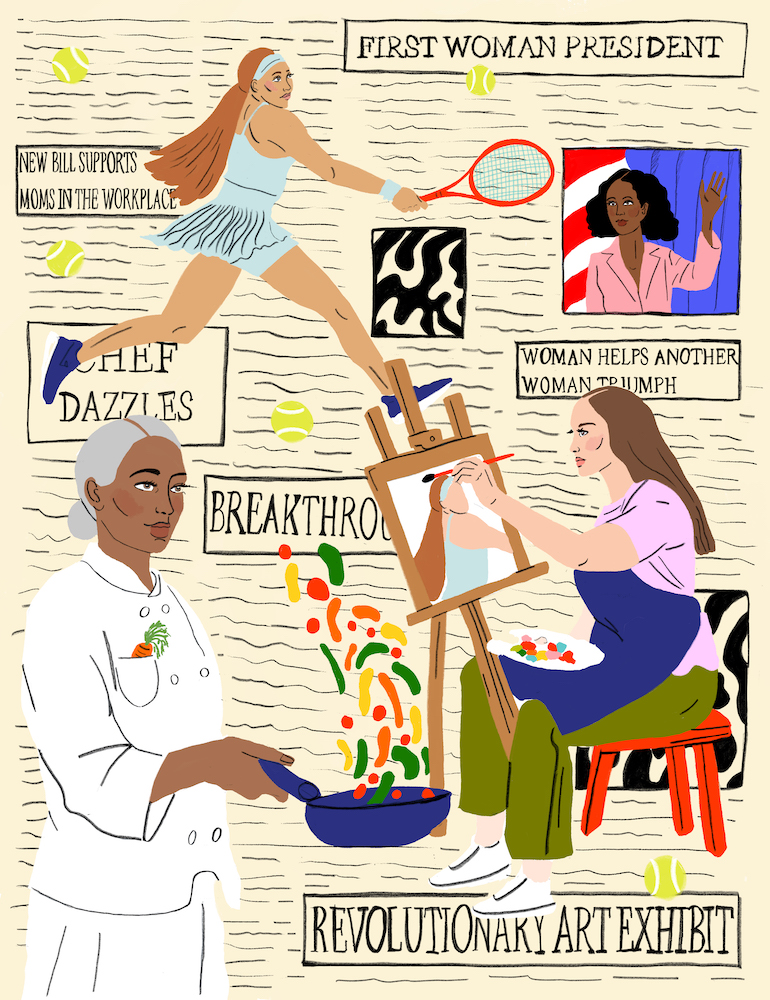Opening Doors to Prosperity

Why do women keep getting the short end of the economic stick? Throughout history, women have been a powerful, vital, driving engine in the workforce. What they often are not is duly recognized and treated as equal to their male counterparts. May Chen, Betty Dukes, Dr. Rebecca J. Cole, and Wilma Mankiller are or were all women who changed history and paved the way for other women to follow in their barrier-breaking footsteps. Yet their names are not commonly known, celebrated, or written about in history books.
During the Industrial Revolution in the 18th and 19th centuries, many women worked in factories, mills, and the textile industries, contributing to the emerging industrial economy. They went on to play vital roles in teaching, nursing, and other professions. During both World Wars, large numbers of women worked. They labored in factories, building ships and tanks. They worked in schools, hospitals, and offices.
Women have been key to breakthrough medical discoveries, technological advances, and life-saving inventions. And, yet, there remains widespread economic gender disparity in the workforce. Women simply continue to struggle for equality. They continue to be held back and face bias against motherhood, sexual harassment, microaggressions, unequal pay, and racism. To succeed and thrive, women need what men so readily have access to: the support and resources to be innovative entrepreneurs; a sisterhood that reaches out to lift them up in their careers; access to and guidance around financial backing; and tireless advocates who fight for their safety, the end of discriminatory practices, and equal pay.
According to the Pew Research Center, the gender pay gap between men and women has barely budged in the U.S. in the past two decades. In 2022, American women typically earned 82 cents for every dollar earned by men. Women continue to be underrepresented in management roles.
Yet research shows that women overwhelmingly contribute more to family and society when they are “financially well.” Women’s personal financial health and economic stability make them more likely to secure their rights and improve their health and safety. A larger, more substantial narrative is at play here. Women not only improve the economy – they use it as a catalyst to make a more just and healthy society for all.
Over time, the intersectionality of these issues has been recognized and explored by various scholars, activists, and organizations. The women’s rights movement emphasized the importance of women’s economic independence to ensure their safety and health. In the 19th century, suffragist Elizabeth Cady Stanton said, “A woman will always be dependent until she holds a purse of her own,” clearly drawing a connection early on that until they are financially free, women will always be limited in their agency and autonomy.
In addition to this connection, it is also critical that we recognize the intersectionality of identity and never operate in silos as we explore the various ways to invest in and support women, their careers, and their economic empowerment.
Research has consistently shown that gender economic equality benefits business, society, and the individual. Businesses see higher profit margins, more efficient workplaces, and a better reputation among customers and stakeholders. Parity contributes to the health and productivity of families, communities, and countries, creating a ripple effect that uplifts everyone. Women’s careers are more than just a path to personal fulfillment and financial wellness: They are a core element of advancing women’s rights and agency.